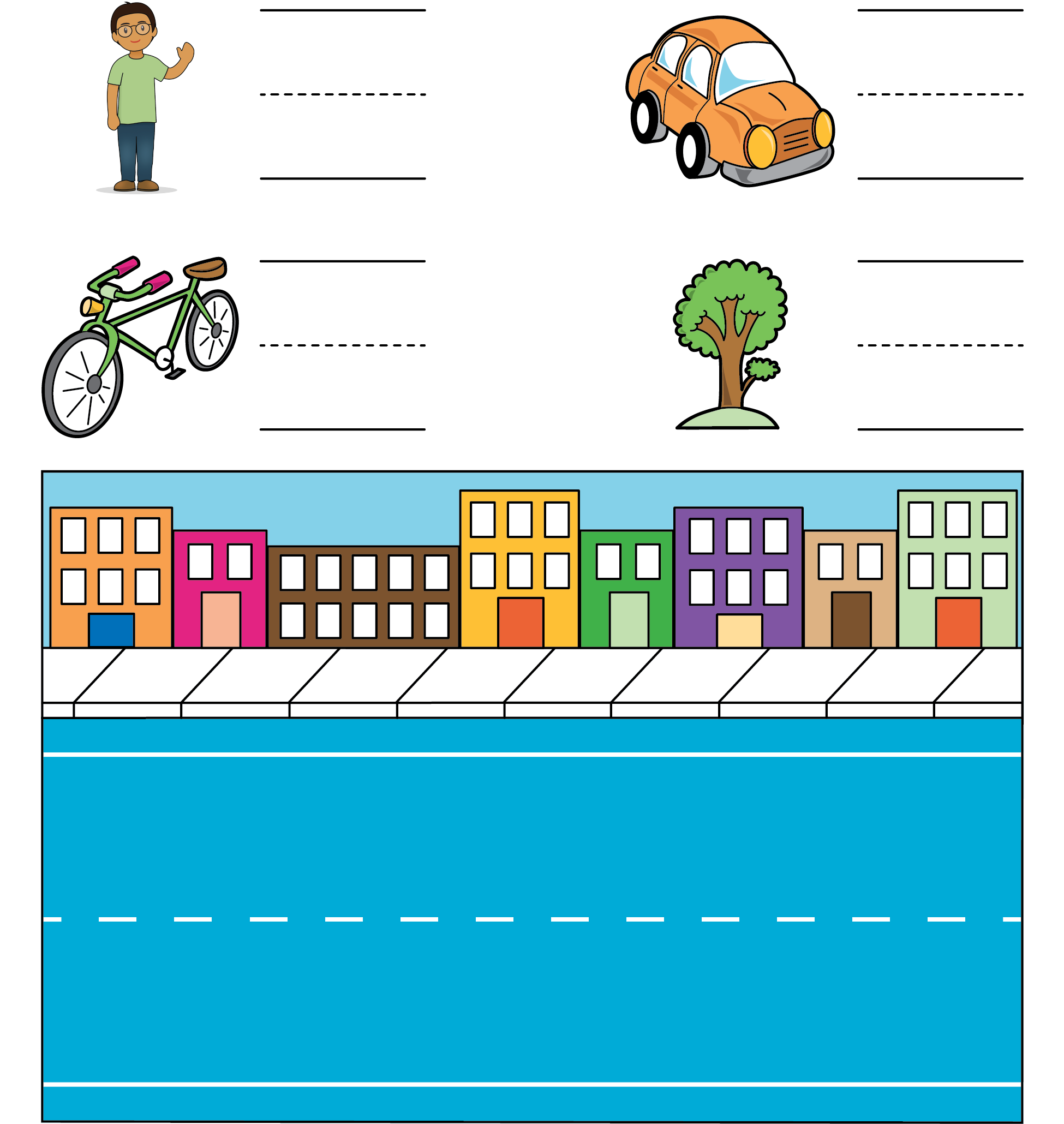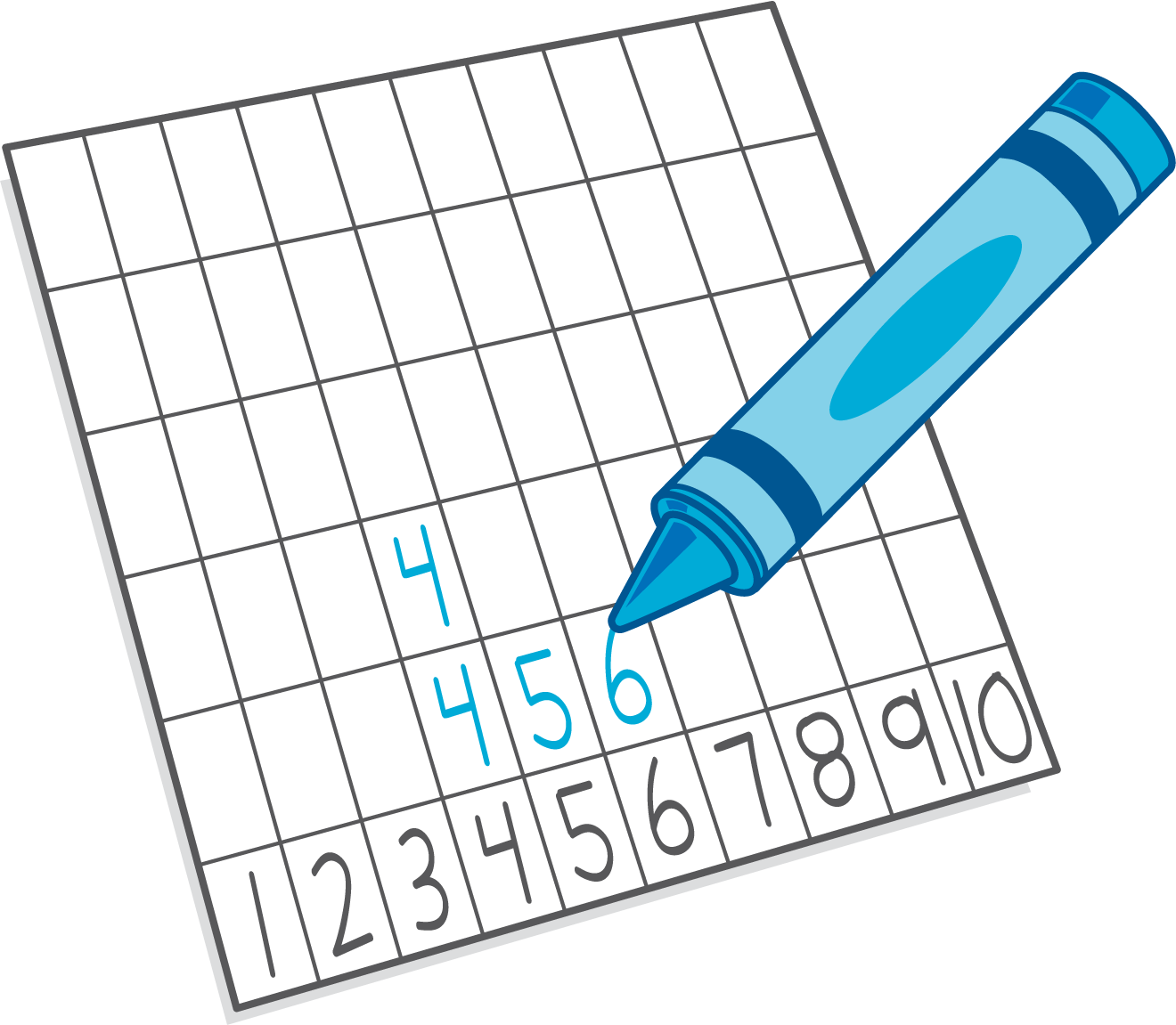Lesson 18
1 More or 1 Less with Towers and Numbers
Warm-up: Act It Out: Forks for Dinner (10 minutes)
Narrative
The purpose of this warm-up is to allow students to connect language to mathematical representation, which will be useful when students need to represent and compare quantities in a later activity. This warm-up gives students opportunities to make sense of a problem by acting it out first before thinking about how to solve the problem (MP1).
Launch
- Groups of 2
- Display and read the story.
- “What is the story about?”
- 30 seconds: quiet think time
- Share responses.
- Read the story again.
- “How can you act out this story?”
- 30 seconds: quiet think time
Activity
- “Discuss your thinking with your partner.”
- 1 minute: partner discussion
- Share responses.
- Choose a way to represent the story as a class.
- Read the story together.
Student Facing
Mai is helping hand out the forks for dinner.
There are 9 people sitting at the table.
Mai has 7 forks.
Are there enough forks for each person to get one?
Student Response
For access, consult one of our IM Certified Partners.
Activity Synthesis
- “Are there enough forks for each person to get one? How do you know?” (There are not enough forks for each person to get one. When we acted out the story, some of the people didn’t get forks.)
Activity 1: What’s Missing? (10 minutes)
Narrative
The purpose of this activity is for students to determine the missing number and tower from the set of 1–10. Students may use the written numbers or the towers to determine which are missing. Students may begin counting from 1 to find the missing number or tower. Students may create a cube tower with the same number of cubes as the tower next to the missing tower, and put 1 more cube on or take 1 cube away. Students may use the existing numbers and determine which number is more or less (“6 is 1 more than 5. 6 is 1 less than 7.”) In the synthesis, students will discuss how they thought about 1 more or 1 less to find the missing number. When students relate the count sequence, via cube towers or numbers, to 1 more and 1 less they are using a vital structure of the count sequence (MP7).
Required Materials
Materials to Gather
Required Preparation
- Each group of 2 needs cube towers of 1–10 and number cards 1-10.
Launch
- Groups of 2
- Give each group access to number cards and cube towers 1–10.
- “Put your towers and numbers in order from 1–10. Put the number under each tower.”
- 1 minute: partner work time
- “Now one person will close their eyes and their partner will remove one tower and the number that matches and hide them behind their back.”
- Demonstrate by telling the whole class to close their eyes. Remove the tower and number card that show 4.
- “Open your eyes. Which number and tower are missing? How do you know?”
- 30 seconds: quiet think time.
- 30 seconds: partner discussion
- “The number and tower that show 4 were missing.”
- Show the tower and the number card that was hidden.
- “Continue playing, taking turns with your partner.”
Activity
- 5 minutes: partner work time
- Monitor for groups using 1 more or 1 less to determine the missing number.
Student Response
For access, consult one of our IM Certified Partners.
Advancing Student Thinking
If students do not use the towers or numbers to identify what is missing, consider asking:
- “What are you trying to figure out?”
- “Could you build a tower that fits in this spot?”
Activity Synthesis
- Display the towers and numbers in order from 1–10 with 9 missing.
- “What number is missing? How do you know?”
- “Did you use the numbers or the towers to help you figure out what was missing?”
- Invite previously selected groups to share how they used 1 more or 1 less with towers or numbers to figure out what number was missing.
Activity 2: One Less, One More (15 minutes)
Narrative
The purpose of this activity is for students to identify the number that is 1 less or 1 more than a given number. Students build cube towers and write numbers to match. Students can then find 1 less or 1 more, using the number or the cube towers for support.
Advances: Listening, Speaking
Supports accessibility for: Memory, Attention, Organization
Required Materials
Materials to Gather
Launch
- Groups of 2
- “You will work with your partner to find 1 less and 1 more.”
- “Let’s do one together.”
- “First, one person builds a tower with the cubes and writes down a number to show how many cubes are in the tower.”
- Make a tower with 7 cubes and write the number 7.
- “Then, their partner makes a new tower with either 1 fewer or 1 more cube than this tower.”
- “How many cubes can be in the new tower we make?” (6 or 8)
- 30 seconds: quiet think time
- 1 minute: partner discussion
- Share responses.
- “We can make a tower with 6 cubes because 6 is 1 less than 7. Then we write the number 6.”
- Build a tower with 6 cubes and write the number 6.
- “Now, describe our towers using the words ‘one fewer’ or ‘one more.’” (The tower with 6 has 1 fewer cube than the tower with 7. The tower with 7 has 1 more cube than the tower with 6.)
- 30 seconds: quiet think time
- 30 seconds: partner discussion
- Share responses.
- Give each group 10 connecting cubes.
- “Now it is your turn to play with your partner.”
Activity
- 10 minutes: partner work time
Student Facing
my tower

my partner’s tower

my tower

my partner’s tower

my tower

my partner’s tower

my tower

my partner’s tower

Student Response
For access, consult one of our IM Certified Partners.
Activity Synthesis
- Invite a student to share a tower and number they recorded.
- “What cube towers and numbers can we record to show 1 more and 1 less?”
Activity 3: Centers: Choice Time (20 minutes)
Narrative
The purpose of this activity is for students to choose activities that offer practice with number and counting concepts
- Math Stories
- Math Libs
- Number Race
Required Materials
Materials to Gather
Required Preparation
- Gather materials from:
- Math Stories, Stage 1
- Math Libs, Stage 1
- Number Race, Stage 1
Launch
- “Today we are going to choose from centers we have already learned.”
- Display the center choices in the student book.
- “Think about what you would like to do first.”
- 30 seconds: quiet think time
Activity
- Invite students to work at the center of their choice.
- 8 minutes: center work time
- “Choose what you would like to do next.”
- 8 minutes: center work time
Student Facing
Choose a center.
Math Stories

Math Libs


Activity Synthesis
-
“What did you like about the activities you worked on today?”
Lesson Synthesis
Lesson Synthesis
“Today we found 1 less and 1 more than a given number. Tell your partner how you can figure out what number is 1 less than 9.” (I can count and figure out what number I say right before 9. I can use cube towers and look for the tower before 9.)
“Let’s practice counting to 20.”
Demonstrate counting to 20. Count to 20 as a class 1–2 times.
Cool-down: Unit 2, Section D Checkpoint (0 minutes)
Cool-Down
For access, consult one of our IM Certified Partners.